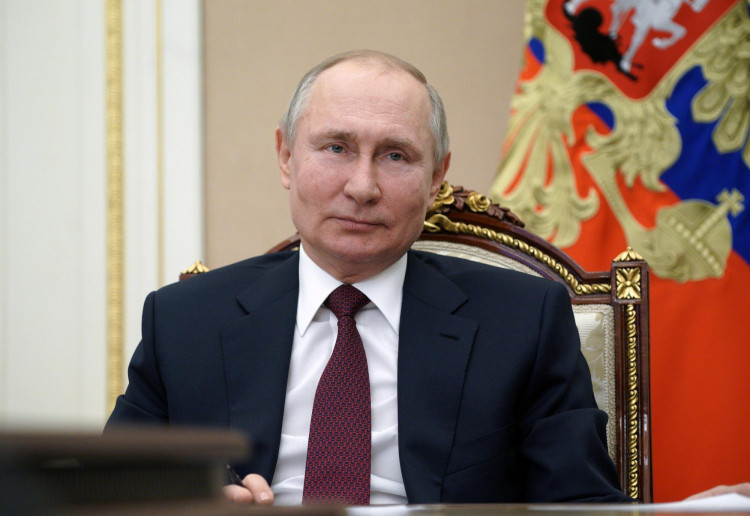Russian President Vladimir Putin has approved a record-breaking defense budget for 2025, allocating 32.5% of national spending-equivalent to over $145 billion-toward military expenditures. The substantial increase highlights Moscow's commitment to sustaining its military campaign in Ukraine, a conflict that has become Europe's largest since World War II.
The newly approved budget, passed by both chambers of the Russian parliament, reflects a significant escalation from this year's 28.3% allocation for defense. Putin's move aims to fortify Russia's military position in a war that has drained resources on both sides. Ukraine, reliant on billions of dollars in Western aid, continues to face the challenge of a better-equipped and numerically superior Russian army.
Amid this development, European Council President Antonio Costa and EU foreign policy chief Kaja Kallas made their first official visit to Kyiv on Sunday, signaling unwavering support for Ukraine. "From day one of the war, the EU has stood by the side of Ukraine," Costa posted on X (formerly Twitter), alongside a photograph with Kallas and EU enlargement chief Marta Kos. "From day one of our mandate, we are reaffirming our unwavering support to the Ukrainian people."
During a press conference with Ukrainian President Volodymyr Zelenskyy, Costa reaffirmed the EU's financial commitment, including €4.2 billion in budgetary support and €1.5 billion in monthly aid drawn from frozen Russian assets. When questioned about the EU's stance should the United States reduce its assistance under a Trump administration, Costa stated, "The EU will stand for Ukraine as long as necessary."
Zelenskyy reiterated Ukraine's resolve against Russian aggression, emphasizing that future ceasefire negotiations must involve NATO and the EU. Zelenskyy declared that Ukraine "will never legally recognize any occupation of our lands by the Russian Federation." He further stressed that Ukraine's NATO membership is key to ending the conflict's "hot phase," urging the Biden administration to solidify its influence during its remaining time in office.
Meanwhile, violence on the ground continues to take a toll. In the southern city of Kherson, three people were killed Sunday morning when a Russian drone struck a minibus, regional Governor Oleksandr Prokudin reported. Seven others were injured in the attack.
In Dnipro, the death toll from a Saturday missile strike rose to four, with 24 injured, including seven in critical condition, according to Dnipropetrovsk Governor Serhiy Lysak. Ukrainian air forces reported that 78 drones were launched by Russia overnight, with 32 destroyed and 45 jammed electronically.
On the Russian side, a Ukrainian drone strike in the Bryansk region killed a child, regional Governor Alexander Bogomaz said. The Russian Defense Ministry reported the downing of 29 Ukrainian drones across four regions, including Bryansk, Kaluga, Smolensk, and Kursk.
The escalating violence underscores the high stakes as both nations dig in for a protracted conflict. Russia has also used its leadership in the BRICS alliance-a bloc of emerging economies including China and India-to garner diplomatic support and challenge Western dominance. At a recent summit, Russian President Vladimir Putin accused the U.S. of "weaponizing" the dollar, describing it as a "big mistake."




